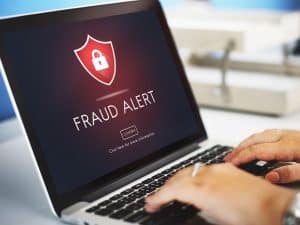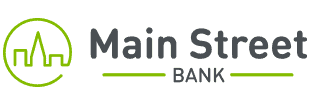During times of financial uncertainly and crisis, it is common for fraudsters to try to capitalize on people’s fear and insecurity. Currently, there are many reports of fraud surrounding unemployment benefits in Massachusetts. Here is what you should know and be aware of regarding this scam.
Communications Claiming to be from The Commonwealth of MA Department of Unemployment Assistance
 Targeted individuals are receiving a Notice of Monetary Determination from the Commonwealth of MA Department of Unemployment Assistance (DUA), stating their claim for Pandemic Unemployment Assistance has been filed. The message then goes on to state that they need to certify their claim weekly by logging into their account, with a website address included in the communication. The message states that failure to do so will result in non-payment of unemployment benefits. These messages may come in the form of a physical letter, email, or phone call, and it is important to be vigilant in all cases.
Targeted individuals are receiving a Notice of Monetary Determination from the Commonwealth of MA Department of Unemployment Assistance (DUA), stating their claim for Pandemic Unemployment Assistance has been filed. The message then goes on to state that they need to certify their claim weekly by logging into their account, with a website address included in the communication. The message states that failure to do so will result in non-payment of unemployment benefits. These messages may come in the form of a physical letter, email, or phone call, and it is important to be vigilant in all cases.
The fraudsters using this tactic are most likely using personal information obtained from previous data breaches, such as the 2017 Equifax Breach, that they can purchase on the black market and are hoping that someone will log in and give all their personal information. The dollar amounts posted in these letters also look enticing, especially to someone who might have fallen on hard times during the COVID-19 pandemic.
What to do if You Suspect Fraud
If you receive this letter in the mail or believe your identity may have been stolen, the State of Massachusetts has a specific website and form to file a false unemployment claim at https://www.mass.gov/info-details/report-unemployment-benefits-fraud or you can call the DUA customer service department at 877-626-6800.
Additionally, if you suspect you information has been stolen, contact any financial institutions you use, credit card companies, and alert the major credit bureaus (Equifax, TransUnion, and Experian) who will further guide you on protecting your social security number.
- Experian: 1-888-397-3742
www.experian.com - Equifax: 1-800-525-6285
www.equifax.com - TransUnion: 1-800-680-7289
www.transunion.com
You may also report fraud to the Federal Trade Commission directly through their website if you suspect your identity or information has been stolen; reportfraud.ftc.gov.
You should always review your account for any suspicious activity, and if it makes you more comfortable, you can update your online banking credentials for extra security. We encourage you to always be vigilant of letters, emails, text messages, or phone calls asking you to provide your personal banking information. A legitimate organization or financial institution will never contact you first to ask for this type of information.
Always be wary of clicking on or visiting website links that are sent to you in a letter or email. The best practice is always to go to the organization’s official website straight from a new browser window, rather than clicking on or typing in the link provided.
If you notice unfamiliar or fraudulent activity in your bank account, notify your bank immediately. You can also use the following tools to help monitor your accounts on a regular basis:
- Text and email alerts when activity occurs in your account
- Mobile and Online Banking to monitor your transaction history at any time
Would you like to receive more information from us? Sign up for our email newsletter to get the latest news, announcements, and information from Main Street Bank.
Please enable javascript to register.

